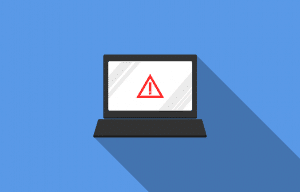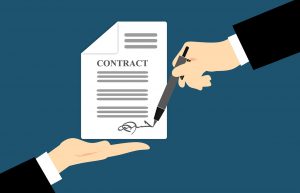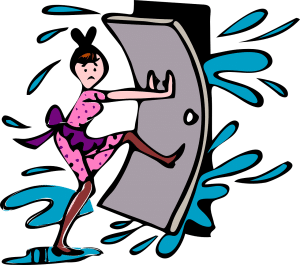Having enough commercial property insurance coverage is crucial to protecting your business. Whether you’re choosing to insure the actual cash value (ACV) or the replacement value of your real property (your building) and business personal property (everything in it), you need to purchase a policy that will cover as much as possible in case disaster strikes. One major storm, one act of vandalism, or one kitchen fire can mean thousands of dollars in repairs, and could even mean closing your doors forever.
There is another reason, though, that you need to purchase the right amount of coverage: your insurance company might actually require you to have a certain amount. Check your policy for what is known as a coinsurance clause, and make sure that you’re meeting your insurance company’s requirements, otherwise you could end up paying for damages to your business out-of-pocket.
What Is Coinsurance?

Your commercial property insurance can feel like another expense in a very long list of expenses that pile up every month. It might be tempting to cut your premium by skimping on coverage – after all, what are the odds that you’ll be forced to make a claim? Well, commercial property insurance claims are more common than you might think, and more costly than you might think, as well. That means that, if you’re covered by a commercial property insurance policy, your insurance company will have to lay out a lot of cash in the event that you do make a claim. It also means that your insurance company needs you (and every other business with a policy) to pay enough in premiums to keep them afloat.
One way that insurance companies make sure that you’re paying enough in premiums is by adding a coinsurance clause to your policy. You may be familiar with this term as it relates to health insurance, but it works a little bit differently in a commercial property insurance policy. If you have a coinsurance requirement in your health insurance plan, it means that your insurance company pays a certain percentage of the bill, and you pay the rest. If you have a coinsurance clause in your commercial property policy, it means that you need to purchase a policy with a certain policy limit, or maximum amount that your insurance company will pay for a claim.
For example, your insurance company might write an 80% coinsurance clause into your policy. This would mean that you would need to purchase enough insurance to cover 80% of the value of your property. So, if you were insuring a building that would cost $1 million to replace, you would have to purchase at least $800,000 in coverage.
How Coinsurance Works
Coinsurance clauses encourage business owners to purchase enough insurance to make sure that any possible claims are fully covered, and to make sure that insurance companies collect enough premium dollars to keep rates fair for everybody. Not every policy will have a coinsurance clause – check your policy conditions to see if yours has one. If you do have a coinsurance clause, it won’t have any effect on your policy unless you experience a loss that requires you to make a claim. If you make a claim, and you haven’t fulfilled your coinsurance requirements, then you could face a penalty.
If you need to make a claim for damages, your insurance company will compare the insurance limit on your policy to the amount of insurance you were required to purchase based on your coinsurance clause. If you purchased less than you were required to, your insurance company might reduce your claim payment in proportion to the difference. For example, if you purchased 10% less than required, your insurance company might pay 10% less than they would if you had purchased adequate coverage.

For example, let’s say that you have an office that is valued at $100,000, and you have a 80% coinsurance clause in your property insurance. You would have to insure your office for at least $80,000. But let’s also say that you’ve only insured it for $40,000, 50% less than you were required to. There is a fire in your office that causes $20,000 in damages – but because you insured your property for 50% less than you were supposed to, your insurance company will now only pay 50% of the claim, or $10,000. You can see why it’s important to pay attention to your coinsurance requirements!
One other very important thing to note: your insurance company will decide whether you have met your coinsurance requirements based on what your property is worth at the time that the damage occurs. So, if your property has increased in value, and you haven’t purchased more coverage, then you could be hit with a penalty.
Avoiding a Coinsurance Clause

One way to avoid a coinsurance clause is to purchase agreed value coverage. An agreed value clause is added to a policy when you and your insurance company agree on the insurable value of your property. In order to reach this agreement, you need to submit a statement of values to your insurer before your policy begins. This statement of values will list everything you are insuring and its value.
Once you have provided a statement of values to your insurer, they will waive your coinsurance penalty for one year (the term of your policy). If you end up making a claim for damages, your property will be assessed based on the agreed-upon value as long as you have insured your property for that amount.
Getting the right commercial property insurance policy is one of the most important things you need to do for your business. Being underinsured can spell big trouble, because you could be hit with a coinsurance penalty by your insurance companies. Always make sure that your policy is keeping up with your growing business, and always make sure to go through your insurance conditions with a fine tooth comb. If you need help with either of those things, talk to EZ. Our knowledgeable agents can answer all of your commercial insurance-related questions, find you great policies, and keep them all up-to-date – and we’ll do it all for free! To get started with us, simply enter your zip code in the bar above, or you can speak to an agent by calling 888-615-4893.














